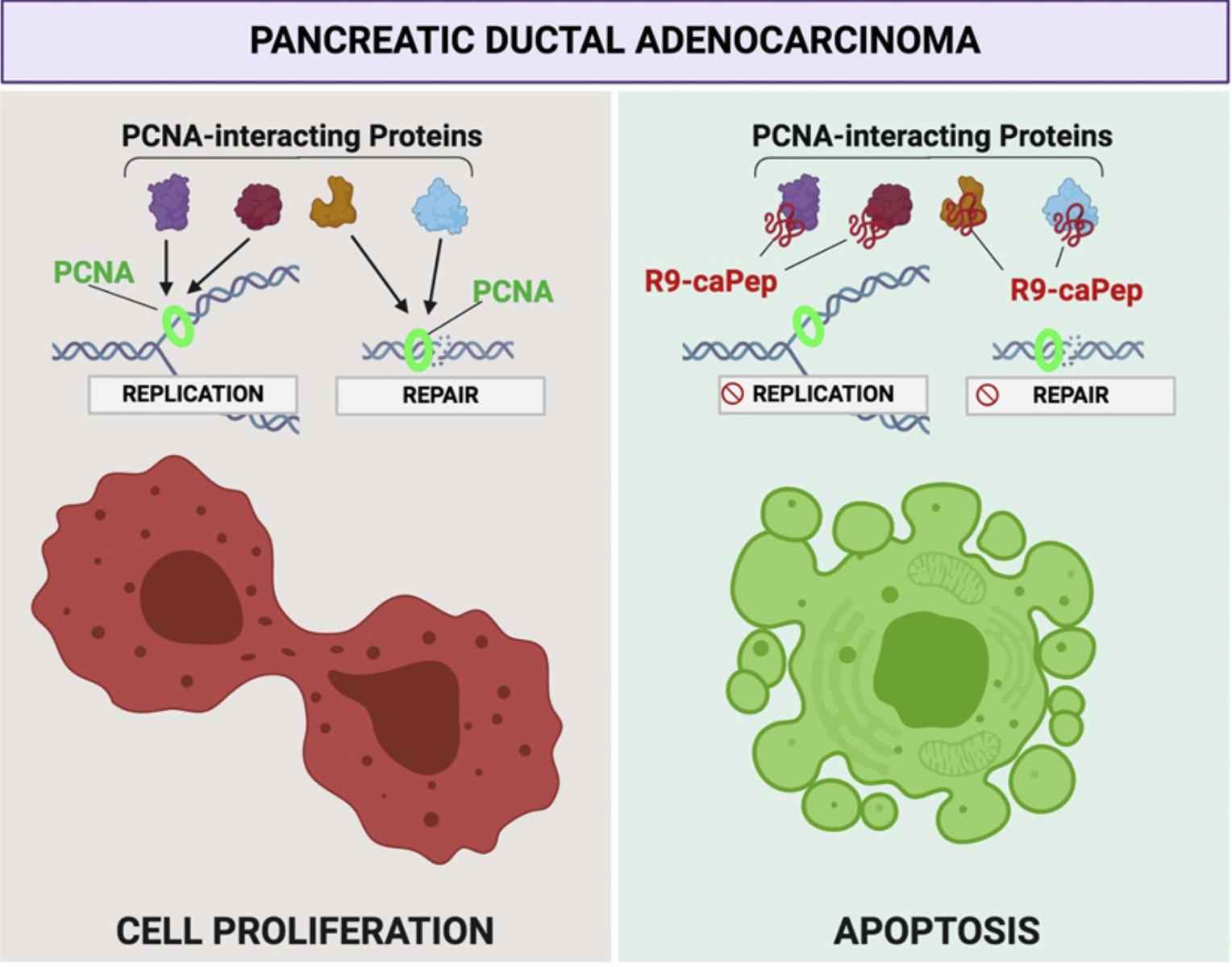What is PCNA Protein
The Proliferating Cell Nuclear Antigen (PCNA), also known by the aliases cyclin, DNA polymerase delta auxiliary protein, and polymerase delta processivity factor, is a crucial protein that plays a central role in DNA replication and repair processes. Belonging to the sliding clamp family, PCNA is structurally characterized by its trimeric ring shape, resembling a donut, and is classified as a DNA clamp.
Recent research has shed light on the dynamic nature of PCNA. Advances in structural biology techniques, such as cryo-electron microscopy, have provided unprecedented insights into the conformational changes of PCNA during various cellular processes. Understanding these structural nuances has been pivotal in deciphering the multifaceted functions of PCNA.
PCNA Biological Functions and Molecular Mechanisms
PCNA's biological functions are diverse and pivotal for the maintenance of genomic stability. As a DNA sliding clamp, PCNA acts as a processivity factor for DNA polymerases, ensuring efficient and faithful DNA replication. Its role extends beyond replication to encompass DNA repair mechanisms, particularly in processes like base excision repair and nucleotide excision repair.
The molecular mechanisms underlying PCNA's functions involve its interaction with a myriad of proteins. PCNA forms complexes with various partners, including DNA polymerases, DNA ligase, and flap endonuclease, orchestrating a symphony of molecular events crucial for genome integrity. Its ability to recruit and coordinate the activities of these partners highlights PCNA as a master regulator of DNA metabolism.

Figure 1. Molecular targeting of cancer-associated PCNA interactions in pancreatic ductal adenocarcinoma. (Smith S J, et al., 2020)
PCNA Related Signaling Pathway
The signal pathways involving PCNA are intricate and tightly regulated. PCNA is intricately involved in cell cycle progression, apoptosis, and DNA damage response pathways. Its role in coordinating these pathways underscores its position as a pivotal player in cellular homeostasis. Elucidating the nuances of PCNA-related signal pathways holds promise for targeted therapeutic interventions.
PCNA Related Diseases
Dysregulation of PCNA is implicated in several diseases, underscoring its significance in human health. Aberrant PCNA expression is associated with various cancers, including breast, colorectal, and ovarian cancers. The overexpression of PCNA in cancer cells is often linked to increased cell proliferation, making it a potential diagnostic marker and therapeutic target in oncology.
PCNA's Applications in Biomedicine
The versatile nature of PCNA has paved the way for its applications in various biomedical fields. In diagnostic development, PCNA is explored as a biomarker for cancer prognosis and treatment response. Its overexpression in cancer cells serves as a potential indicator of malignancy.
PCNA's involvement in immune responses has also spurred interest in vaccine development. Research is ongoing to harness PCNA's ability to modulate immune reactions, potentially leading to the development of novel vaccine adjuvants.
In therapeutics, the targeting of PCNA is being explored as a strategy to inhibit cancer cell proliferation. Small molecules and peptides designed to interfere with PCNA interactions are under investigation as potential anticancer agents. Additionally, understanding PCNA's role in DNA repair mechanisms offers insights into sensitizing cancer cells to DNA-damaging therapies.
Recommended Products
| Cat.# | Product name | Species | Source (Host) | Tag |
|---|---|---|---|---|
| PCNA-1579H | Recombinant Human PCNA, His-tagged | Human | E.coli | His |
| PCNA-1620H | Recombinant Human PCNA Protein, His (Fc)-Avi-tagged | Human | HEK293 | His (Fc)-Avi |
| PCNA-175H | Recombinant Human PCNA, His-tagged | Human | Insect Cell | N/A |
| PCNA-110H | Recombinant Human PCNA Protein, His-tagged | Human | E.coli | His |
| PCNA-4863H | Recombinant Human PCNA, His-tagged | Human | E.coli | His |
| PCNA-066H | Recombinant Human PCNA Protein | Human | E.coli | |
| PCNA-4488H | Recombinant Proliferating Cell Nuclear Antigen, GST-tagged | Human | Human | GST |
| PCNA-626H | Recombinant Human PCNA Protein, MYC/DDK-tagged | Human | HEK293 | Myc/DDK |
| PCNA-536H | Recombinant Human Proliferating Cell Nuclear Antigen | Human | E.coli | N/A |
| PCNA-4814H | Recombinant Human PCNA Protein (Met1-Ser261), C-His tagged | Human | E.coli | C-His |
Reference
- Smith S J, et al. Molecular targeting of cancer-associated PCNA interactions in pancreatic ductal adenocarcinoma using a cell-penetrating peptide. Molecular Therapy-Oncolytics. 2020, 17: 250-256.

